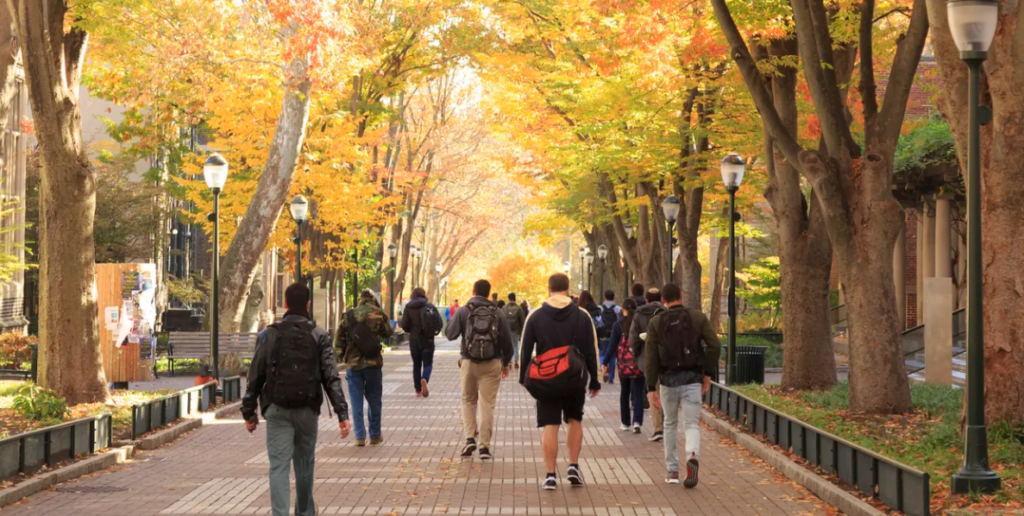Second-generation college students need support, too
4 min read
If you really want to bridge the racial wealth gap, stop asking families of color to sacrifice so much to educate their children.
For nearly 25 years, I’ve worked to support young men of color from marginalized communities so that they can achieve success past high school graduation. I am also a first-time parent of a recent college applicant. Yet, even with my experience and background, I was struck by how much the colleges and universities that accepted my daughter demanded of our family.
My wife and I both climbed out of poverty to become first-generation college graduates. Because so many people sacrificed so that we could succeed, we believe in lifting as we climb. We support not only our children but also our parents and our extended families. Yet because we supposedly have “made it” based on our incomes alone, we were informed by colleges and universities that we had “adequate financial resources” and could afford to spend hundreds of thousands of dollars to educate our daughter.
We were being asked to sacrifice our upward mobility and our family’s chance to build generational wealth in order to give our child a shot at the future. It was demoralizing and, frankly, insulting.
The experience made me think of a powerful New York Times article about how Black boys and young men are the most likely to fall back into poverty even after their parents reach or surpass the middle class. The truth is, for so many of us who might look like we’ve “made it,” we’re constantly facing the potential of backtracking and perpetuating cycles of debt that have held our families and communities back for generations and contribute to the massive wealth gap in our country.
As a Black family, we’re not standing on the shoulders of those with generational wealth; we are standing on the shoulders of those with generational poverty. We do not have our names on structures on college campuses; yet, there is documented proof that our enslaved ancestors built many of the facilities and buildings on university campuses for free. Now they’re asking us to mortgage our present and future to give our child a chance.
Our daughter, like countless other young people of color, was being forced to choose between schools that would leave her and her family in crippling debt or those that, due to financial aid and a strong emphasis on job readiness, would allow her to land on her feet with minimal debt or none at all. Thanks to a financial literacy course we strongly suggested she take, she was able to gain the knowledge that had eluded my wife and me. She chose to attend Rochester Institute of Technology because it offered her and our family the most financial freedom through grants, scholarships, and a co-op program to work while she studies.
While I was inspired by and proud of her choice, I wondered how many colleagues, friends, and families I have worked with over the years had been in this very same situation and why I’d never heard anyone share their experience before.
Higher education has put an incredible emphasis on supporting first-generation college students, which is absolutely needed. However, there are few considerations or conversations around what it means to be the parent of a second-generation college student. Because when we talk about closing the wealth gap, we need to include second-generation families who are attempting to build wealth that they can pass down — a prospect that has, historically and purposely, been out of reach for so many of us.
It’s time we acknowledged that not all Estimated Family Contributions are created equal. Just as colleges and universities look at test scores to approximate how a student will perform on their campus, they take a similar approach when looking at a family’s income to see how much they can supposedly afford to pay. But these cold metrics cannot and do not tell the full story.
If we truly want to see positive change for our communities and close the wealth gap, colleges and universities must collect materials from students that include not just first-, but second- and third-generation college status. They must also offer more robust employment support and leverage alumni associations to provide pipelines to internships, employment, and professional mentorship opportunities for students who lack the networks of their more affluent peers. Lastly, they must provide the skills that are most desirable to future employers.
I also encourage college counselors to emphasize the importance of applying to colleges and universities with strong four-year graduation rates, offer co-op programs, and focus on providing employable skills that speak to the ever-changing job market. We must demystify community colleges and recognize their value as a cost-effective pathway for degrees and certifications. It’s not where you start, it’s how you finish. Counselors should also support and inform parents of their ability to push back and negotiate family contributions and financial aid.
By engaging in more holistic conversations around how to support and change trajectories for students who don’t have the advantages of generational wealth, higher education can finally become the path to economic success that it has long promised to be.
This article was originally posted on Second-generation college students need support, too







